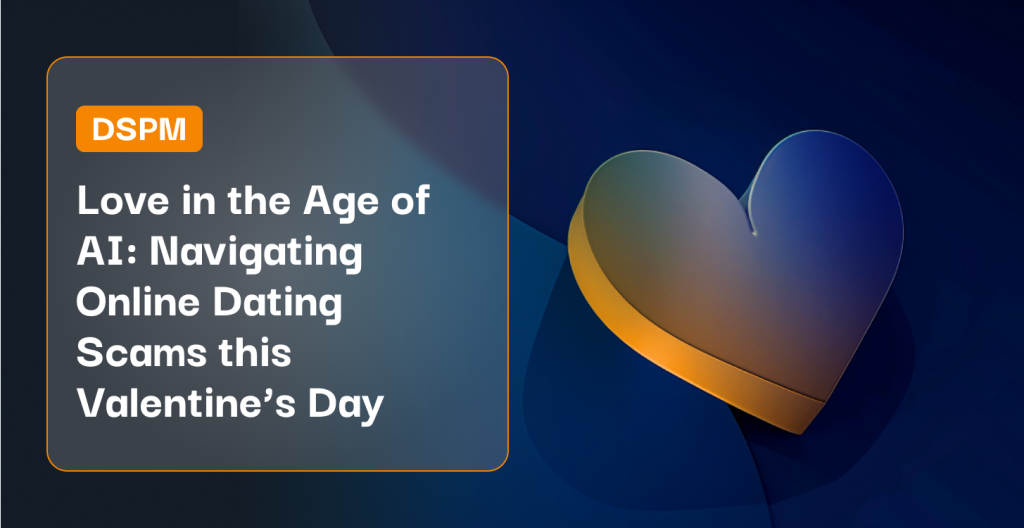This blog originally appeared here: https://drj.com/industry_news/love-in-the-age-of-ai-navigating-online-dating-scams-this-valentines-day/
With Valentine’s Day approaching, love is in the air, and so is the buzz of online dating. Online dating is increasingly becoming the norm, as shown in a recent survey from Forbes Health where 45% of respondents found that dating apps and websites were the top places to find dates. While many have found love this way, online dating can often bring a less heartwarming trend to the forefront – the sophisticated abuse of Generative AI in dating and romance scams. While generative AI can play a big role in helping organizations stay ahead of cyber threats, it can and is also being used by cybercriminals.
For example, Generative AI is already being used very successfully to improve social engineering scams. In fact, recent research from Darktrace shows a 135% increase in ‘novel social engineering attacks’ across thousands of active customers. Now cybercriminals are able to leverage gen AI to create ultra-realistic, almost foolproof personas, that craft everything from convincing messages to lifelike images and audio. These personas can be crafted easily by using gen AI to alter existing dating profiles or creating them from scratch. This has made it increasingly easy to deceive individuals into believing false narratives, and steal their money and personal information as a result.
It is important that dating app users know the signs to look for and take the necessary precautions to keep themselves safe online. It is also the responsibility of the dating apps and websites to implement robust security measures to keep their users safe. Here, we will provide advice for both users and dating organizations to safeguard themselves against AI-driven deceptions this Valentine’s Day and beyond.
Advice for Online Daters
1. Control what you share
First and foremost, the best advice for dating app users would be to simply exercise caution with the information that they share. Personal details, when in the wrong hands, can be used to manipulate or even impersonate them. Before sharing, users should ask themselves if the information they are sharing is necessary for getting to know someone.
2. Be Alert to Gen AI
It is also important that users stay alert to the signs of generative AI abuse. Gen AI has made it difficult to determine if a person is real or not, but it is still not perfect. There are often little signs or an eerie feeling (“uncanny valley”) that an interaction is not real. Users should look out for overly polished profiles, images with weird fingers, responses that feel scripted or repetitive, or a lack of personal touch in conversations, as these can all be red flags.
3. Never Send Money
Users should obviously be very cautious when it comes to any requests for money. Unfortunately, cybercriminals will use AI to persuade users to send them money, manipulating them into thinking it is an emergency. Users should be weary of sending money to anyone online that they have not met in person. Despite the rapport, they remain strangers until you meet them in person.
4. Check the Source
Finally, it is recommended that online daters continue to utilize both tools and practices to safeguard against scams. Users should always be skeptical of any links or attachments sent their way, and use reverse image searches to verify the authenticity of profile pictures.These practices and tools provide insight into the source and authenticity of the links and images.
Advice for Dating Apps and Websites
1. Invest in identity Verification and Fraud Reduction measures
Dating apps must play a pivotal role in combating AI-driven scams. Dating apps and websites must implement robust identity verification measures and employ advanced fraud detection algorithms to reduce the use of fake accounts and bots.
2. Identify duplicate content
Dating sites should invest in sophisticated content moderation tools that can detect, flag and remove fraudulent or duplicative visual content. Implementing these tools and practices can make it more difficult for scammers to create and maintain fake profiles, creating a safer online dating environment for all.
3. Promote phishing resistant MFA
It is also important that dating platforms consider that the ease of compromising passwords has never been higher. Because of this, these organizations should encourage the use of phishing-resistant MFA by their users. This adds an extra layer of security for users, ensuring that if cybercriminals obtain login information, accessing the account is still a challenge.
4. Reduce the volume of data at risk
Additionally, these platforms should focus on minimizing the volume and sensitivity of accessible data that isn’t required for user interaction, further protecting user privacy and security. This could include implementing device level restrictions to prevent or log users taking screenshots or recording the screen and the use of watermarks to flag the source of the photo.
For many, online dating has simplified the search for love, enabling people to connect with potential partners from the comfort of their own homes. However, this convenience presents new and evolving challenges, especially with the emergence of generative AI. As cybercriminals continue to abuse Gen AI to trick and manipulate dating app users, it is vital that both the users and platforms themselves take the necessary precautions to prevent these evolving scams. Incorporating the advice presented here, can allow users to protect their data – and their hearts – this Valentine’s Day and beyond.






